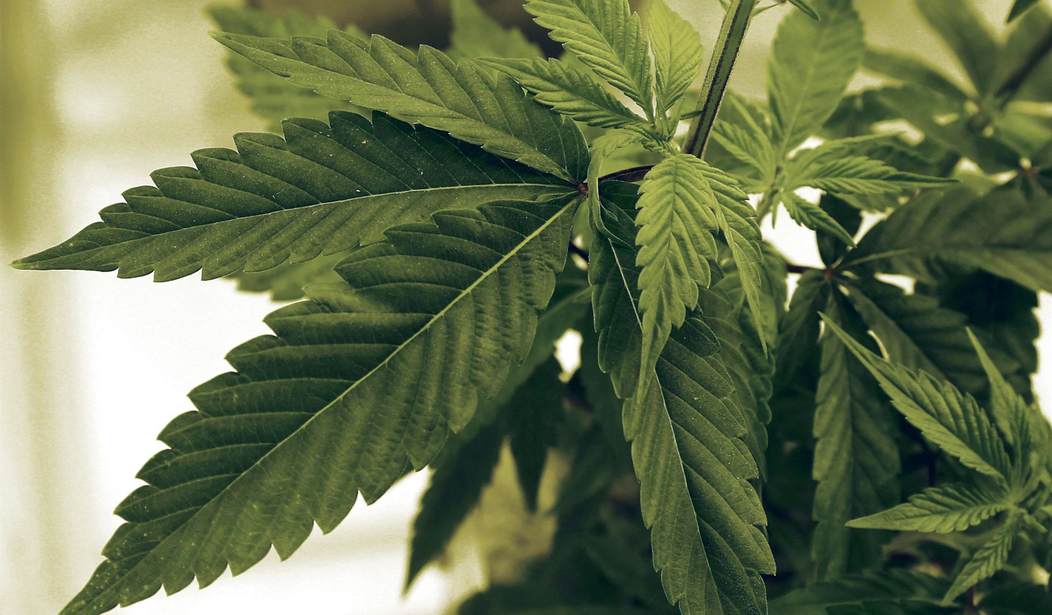President Joe Biden's take on American sprinter Sha'Carri Richardson's one-month suspension for marijuana use was similar to hers and correct as far as it went. "Rules are rules," he said on Saturday, and "everybody knows what the rules are going in."
Biden added that "whether that should remain the rule is a different issue." But as the collapse of pot prohibition continues apace in the United States, that issue is unavoidable. Now that 44% of Americans live in states that treat marijuana like alcohol, the lingering distinction between these two intoxicants makes less sense than ever before.
Richardson, who tested positive for an inactive THC metabolite during U.S. Olympic Team Trials on June 19, said she used marijuana in Oregon, where voters approved legalization in 2014, after learning about her biological mother's death. Had she reacted by having a drink or two, that choice would have had no impact on her athletic career.
But under the 2021 World Anti-Doping Code, which the U.S. Anti-Doping Agency enforces, THC is considered a "substance of abuse," so designated because it is "frequently abused in society outside of the context of sport." Although the same obviously could be said of alcohol, that drug is not considered a "substance of abuse."
Counterintuitively, Richardson's infraction had nothing to do with "doping" as it is usually understood, since the USADA concedes that her marijuana use was "unrelated to sport performance." Nor does her positive test result indicate that she was under the influence of marijuana during competition, since the THC metabolite cited by the USADA can be detected in a cannabis consumer's urine for days or weeks after the last dose.
Richardson's cannabis consumption nevertheless had severe consequences. It nullified her first-place finish in the 100-meter trials, making her ineligible for that event at this summer's Olympics, where she had a good shot at winning a gold medal.
Recommended
The 21-year-old runner responded to this crushing disappointment with remarkable grace. "As much as I'm disappointed, I know that when I step on the track I represent not only myself, I represent a community that has shown great support, great love," she said on NBC's Today show. "I apologize for the fact that I didn't know how to control my emotions or deal with my emotions during that time."
The USADA said Richardson's suspension was reduced from three months to one "because her use of cannabis occurred out of competition and was unrelated to sport performance, and because she successfully completed a counseling program regarding her use of cannabis." The idea that Richardson needed "counseling" because of her perfectly understandable response to her mother's death, as if that decision revealed her as an incipient drug addict, is irrational and more than a little insulting.
Other athletic organizations have recognized that arbitrary rules like the USADA's can no longer be justified (if they ever could). In 2019, the National Hockey League and Major League Baseball stopped testing players for marijuana.
Businesses also are adapting to the new reality of widely legal cannabis. Last month, Amazon, the nation's second largest private employer, announced that it would no longer test job applicants for marijuana and would instead treat cannabis consumption "the same as alcohol use."
The Biden administration initially indicated that it also would take a more tolerant approach, saying in February that it would allow people with a "limited" history of marijuana use -- a description that encompasses at least half of American adults -- to work in the Executive Office of the President. A month later, however, The Daily Beast reported that "dozens of young White House staffers have been suspended, asked to resign, or placed in a remote work program due to past marijuana use."
Repealing the federal ban on marijuana would greatly simplify decisions such as these. But since Biden opposes that change and Democratic legislators who favor legalization are not making a serious effort to attract Republican support, it seems unlikely that will happen anytime soon.
Jacob Sullum is a senior editor at Reason magazine. Follow him on Twitter: @JacobSullum. To find out more about Jacob Sullum and read features by other Creators Syndicate writers and cartoonists, visit the Creators Syndicate webpage at www.creators.com.
COPYRIGHT 2021 CREATORS.COM

























Join the conversation as a VIP Member